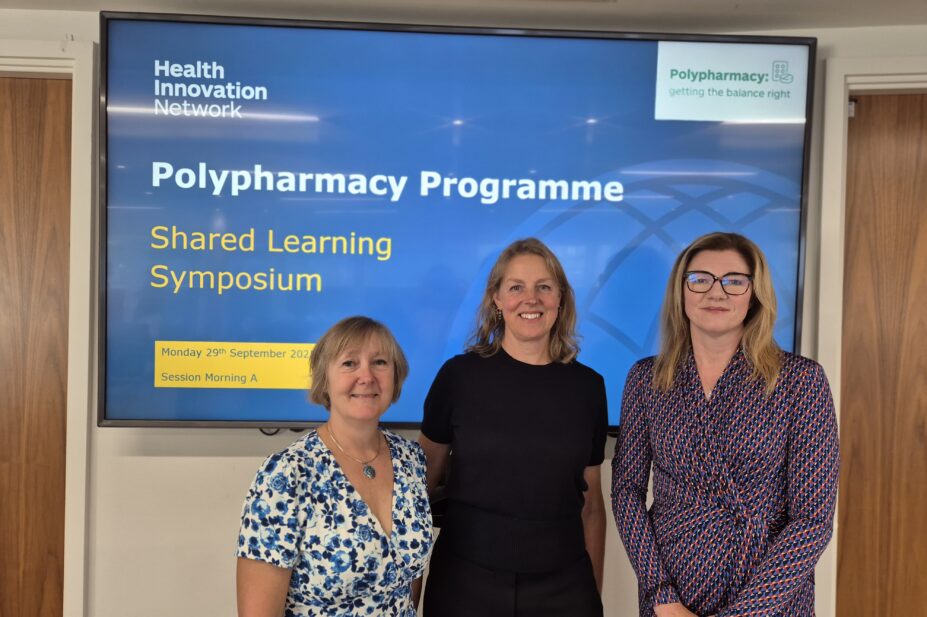
Courtesy of Health Innovation West of England
A programme that aimed to address problematic polypharmacy in England has now ended.
The Health Innovation Network’s (HIN’s) National Polypharmacy Programme closed in September 2025, with a closing event, the HIN’s Polypharmacy Programme Shared Learning Symposium, held at the Royal Pharmaceutical Society’s (RPS’s) London offices on 29 September 2025.
A report published by HIN in September 2025 said that the programme could have saved over £1m across the NHS in England, and had supported over 2,000 healthcare professionals to address overprescribing.
More than 1,300 pharmacists and GPs completed HIN’s Polypharmacy Action Learning Sets training, the report said.
The programme launched in 2022 and was intended to run for three years. A spokesperson for HIN said: “There was a hope that during this time further funding could be found or an alternative ‘home’ to continue the work of the programme but, while discussions continue, nothing as yet has been secured.
“We’re incredibly proud of all the resources we’ve created for healthcare professionals and patients, which will provide a legacy in continuing to support shared decision making around problematic polypharmacy. We encourage colleagues to join our shared learning network where we can continue this momentum.”
Lelly Oboh, clinical care and professional lead for overprescribing at NHS South East London, said the programme “has laid a strong foundation for pharmacists and other primary care clinicians to reduce overprescribing, through the development of a comprehensive suite of resources designed to enhance the uptake and quality of SMRs”.
The success of the programme, Oboh said, “highlights the value of a sustained national investment to maintain momentum and enthusiasm needed on the ground if we are to fully realise the ambitions of the National Overprescribing Review recommendations”.
“While policy frameworks and guidance provide a foundation for reducing overprescribing, meaningful progress relies on equipping clinicians with the skills, confidence, and system support needed to embed safe deprescribing into routine care. This is particularly critical given increasing polypharmacy and complexities in an ageing population.
“Without a commitment to ongoing education, system support, and culture change, the gains achieved through the HIN National Polypharmacy Programme risks being undermined, and the opportunity to translate and embed sustainable, person-centred deprescribing practice across the NHS may be lost.”
Tony Avery, national clinical director for prescribing for NHS England, said: “Tackling the complex challenge of problematic polypharmacy can sometimes feel overwhelming, so with support from NHS England, HIN has successfully developed structured approaches for healthcare professionals that provide a valuable resource to help ensure that medicines are being used effectively and safely, aligning with patient goals.”
In March 2025, HIN published a guide aimed at helping primary care providers and integrated care boards (ICBs) to tackle problematic polypharmacy.


